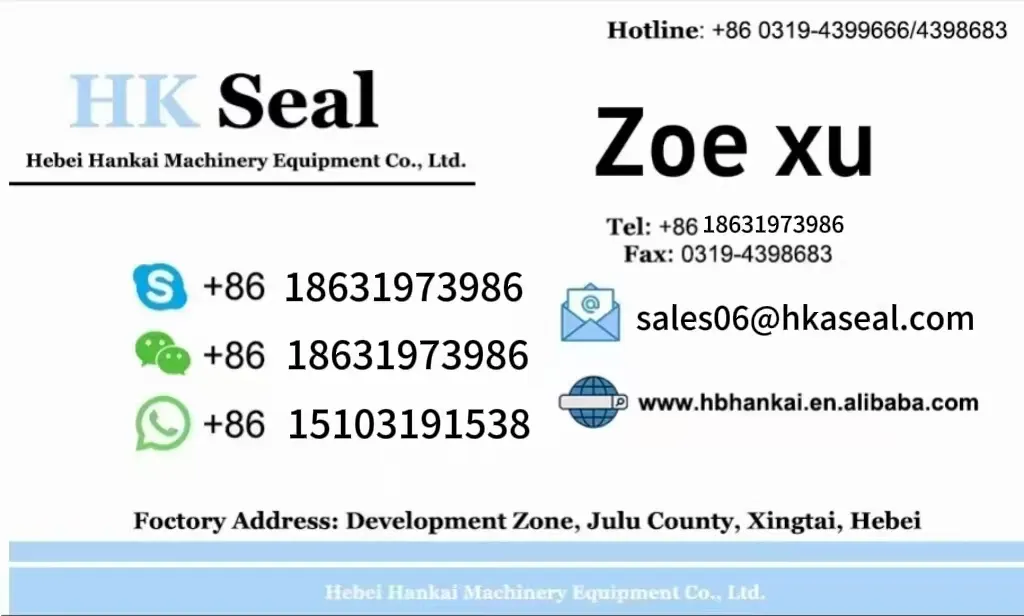Oktoba . 05, 2024 05:21 Back to list
hydraulic rod wiper seal
The Importance of Hydraulic Rod Wiper Seals in Machinery
Hydraulic systems are pivotal in various industrial and automotive applications, facilitating the movement and control of machinery through the use of pressurized fluids. Among the numerous components that form hydraulic systems, hydraulic rod wiper seals play a crucial role in maintaining the efficiency and longevity of these systems.
What are Hydraulic Rod Wiper Seals?
Hydraulic rod wiper seals, sometimes called scraper seals, are designed to prevent contaminants from entering the hydraulic cylinder. They are installed at the exterior surface of the rod, ensuring that debris, dirt, and moisture do not interfere with the movement of the hydraulic piston. These seals are vital because contaminants can drastically reduce the performance and lifespan of hydraulic components.
Functionality and Design Principles
The primary function of hydraulic rod wiper seals is to protect the hydraulic fluid and internal components of the cylinder from external contaminants. When the hydraulic rod moves in and out of the cylinder, the wiper seal works to scrape away any material that could impede operation. This process is particularly critical in environments where exposure to dirt, dust, or other particles is prevalent.
Wiper seals are typically made from durable materials such as polyurethane, nitrile, or fluorocarbon rubber, which provide both flexibility and strength. The design of these seals is engineered to create a tight fit against the rod while allowing for smooth movement. The effectiveness of a wiper seal is largely determined by its profile, elasticity, and surface finish, all of which affect its ability to keep debris at bay while minimizing friction.
hydraulic rod wiper seal

Importance of Preventing Contaminants
Contaminants can lead to severe damage, including wear and tear on seals and other hydraulic components, increased maintenance costs, and even catastrophic failures of machinery. The economic impact of such failures can be significant, as unplanned downtime can disrupt operations and lead to expensive repairs. Therefore, investing in high-quality hydraulic rod wiper seals is essential for ensuring the sustained performance of hydraulic systems.
Selecting the Right Wiper Seal
Choose the correct hydraulic rod wiper seals based on several factors, including the operating environment, the type of hydraulic fluid used, and the specific application requirements. For instance, in environments exposed to extreme temperatures or chemicals, seals made from specialized materials capable of withstanding harsh conditions should be selected.
It is also important to consider the seal's design. Some designs focus on providing a more aggressive scrape, while others are better suited for minimizing friction. An understanding of the operating conditions and requirements can help engineers and technicians make informed decisions when selecting seals.
Conclusion
In conclusion, hydraulic rod wiper seals are essential in safeguarding hydraulic systems from contaminants, thus ensuring smooth operation and prolonging the life of machinery. By effectively blocking dirt and moisture, these seals play a vital role in maintaining the efficiency of hydraulic rods and other components within the system. Proper selection and maintenance of hydraulic rod wiper seals can lead to improved reliability, reduced maintenance costs, and enhanced performance of hydraulic machinery. As industries continue to evolve and push the boundaries of technology, the importance of these seemingly small components remains paramount in achieving operational excellence.
-
TCN Oil Seal Metal Ring Reinforcement for Heavy Machinery
NewsJul.25,2025
-
Rotary Lip Seal Spring-Loaded Design for High-Speed Applications
NewsJul.25,2025
-
Hydraulic Cylinder Seals Polyurethane Material for High-Impact Jobs
NewsJul.25,2025
-
High Pressure Oil Seal Polyurethane Coating Wear Resistance
NewsJul.25,2025
-
Dust Proof Seal Double Lip Design for Construction Equipment
NewsJul.25,2025
-
Hub Seal Polyurethane Wear Resistance in Agricultural Vehicles
NewsJul.25,2025
-
The Trans-formative Journey of Wheel Hub Oil Seals
NewsJun.06,2025
Products categories
















